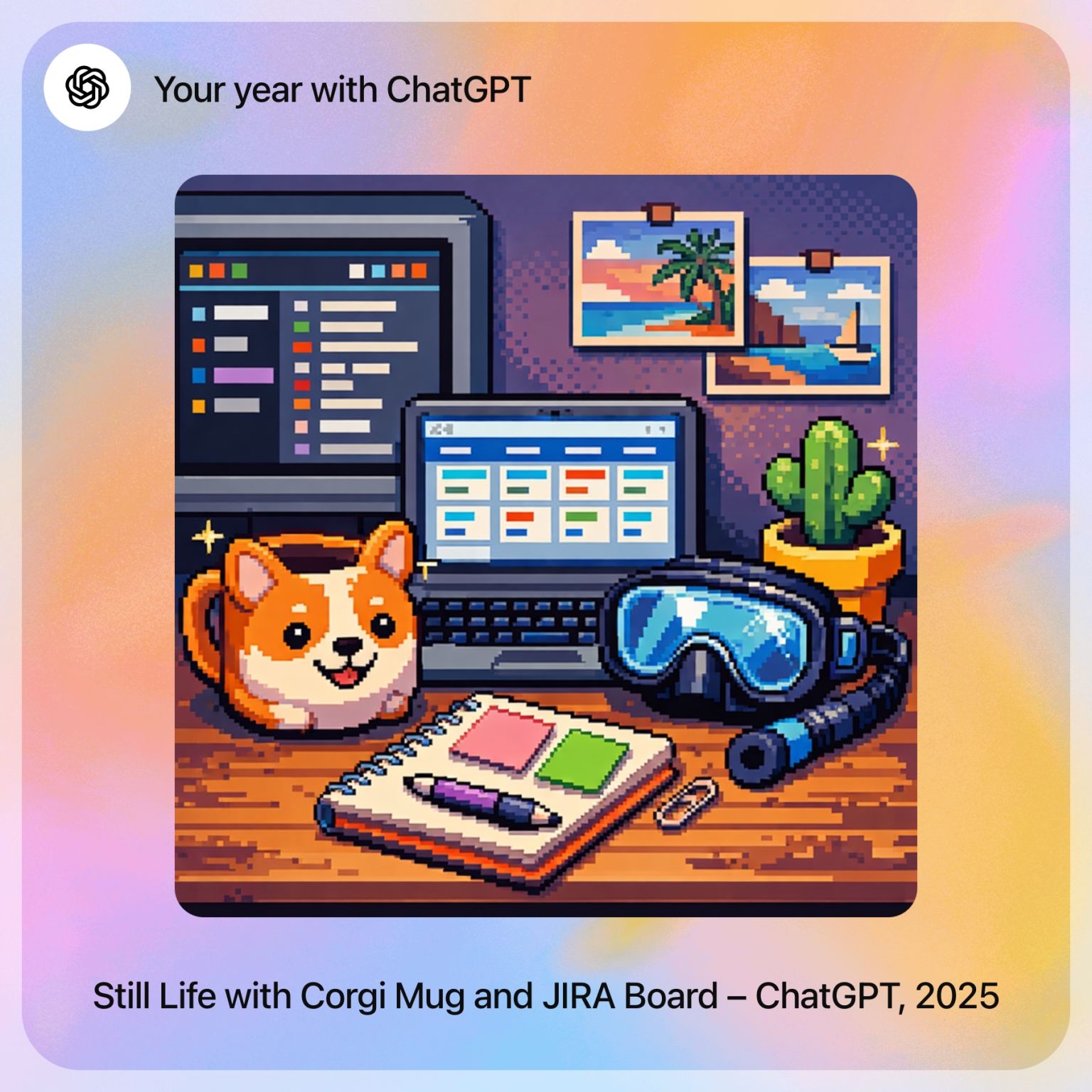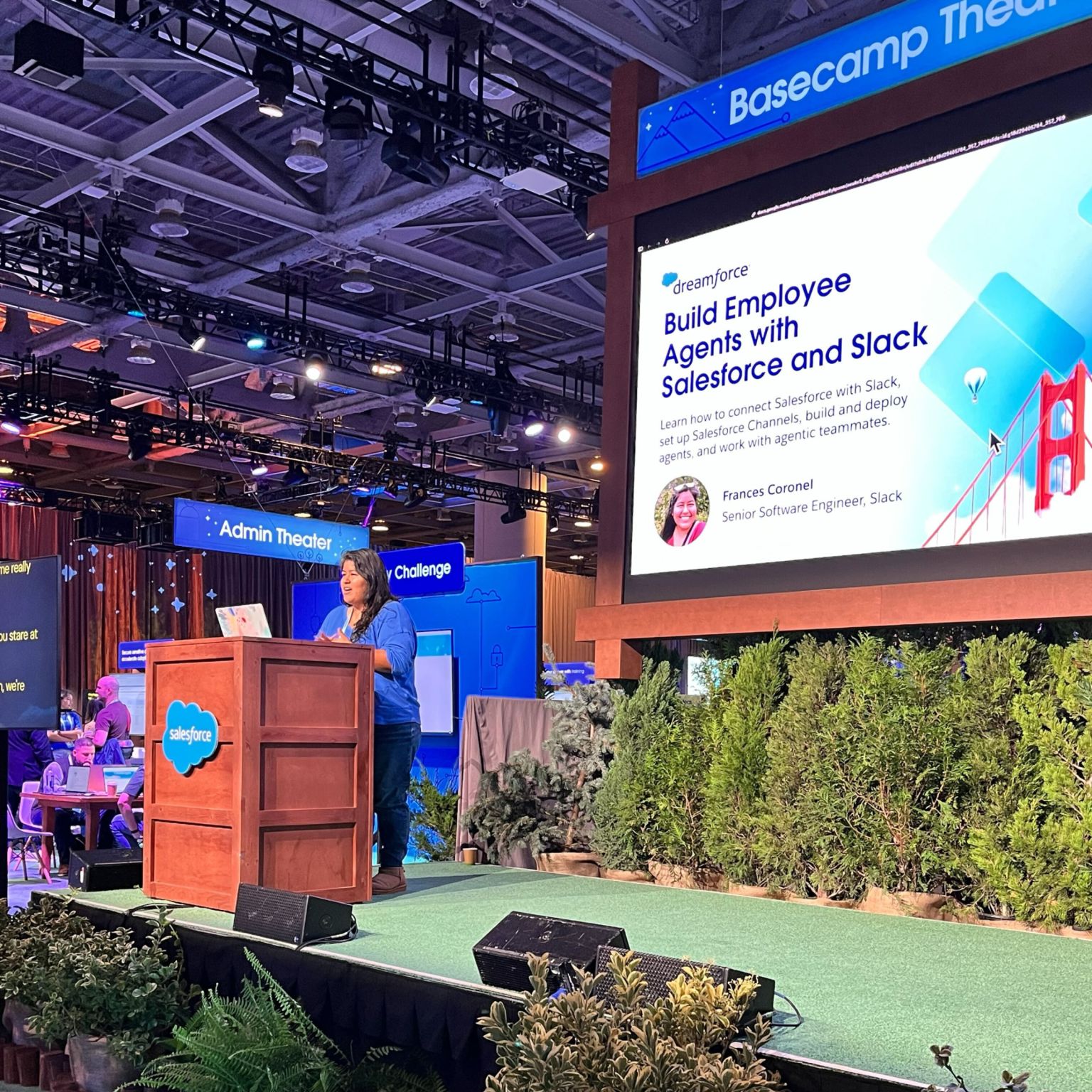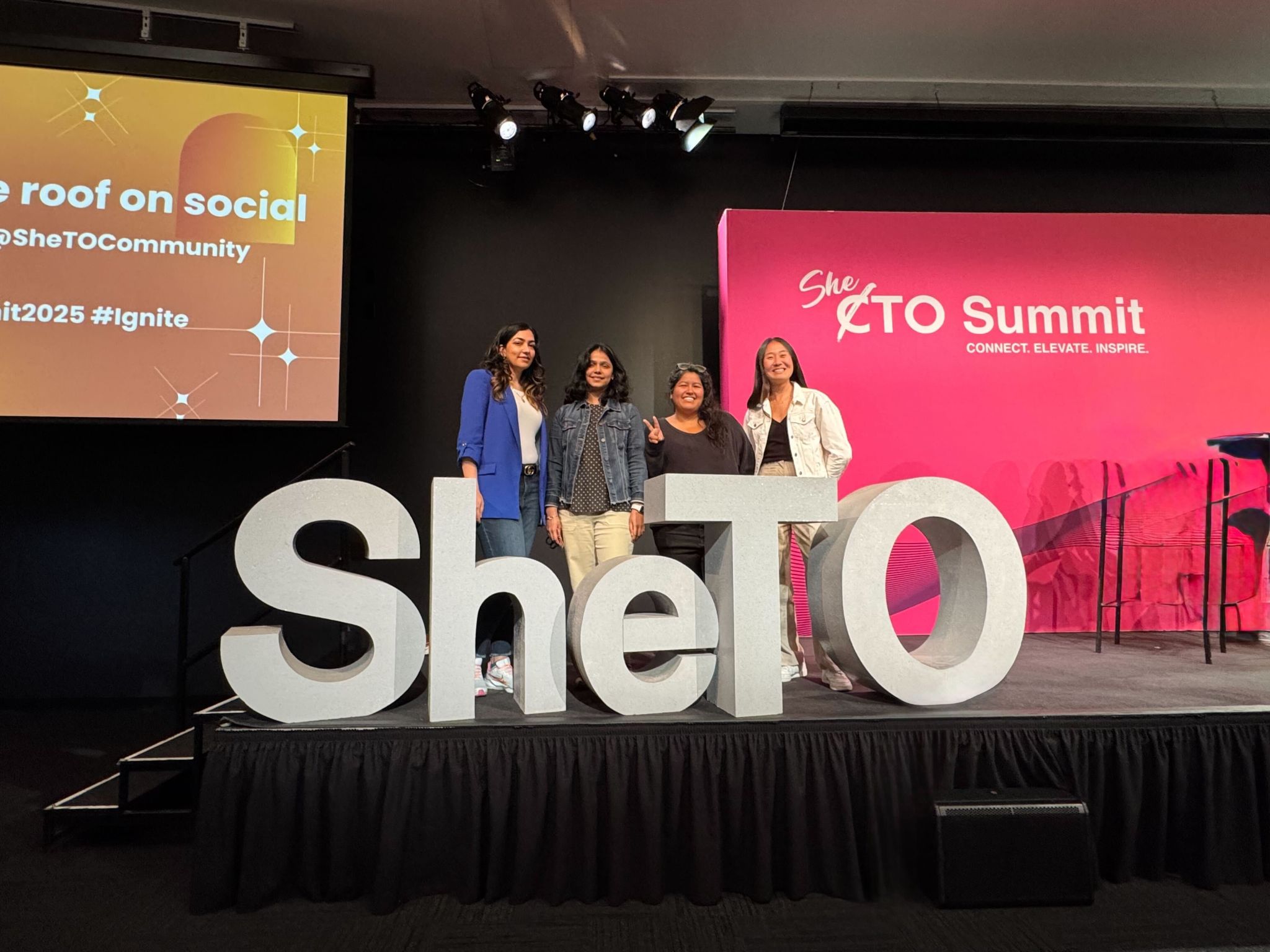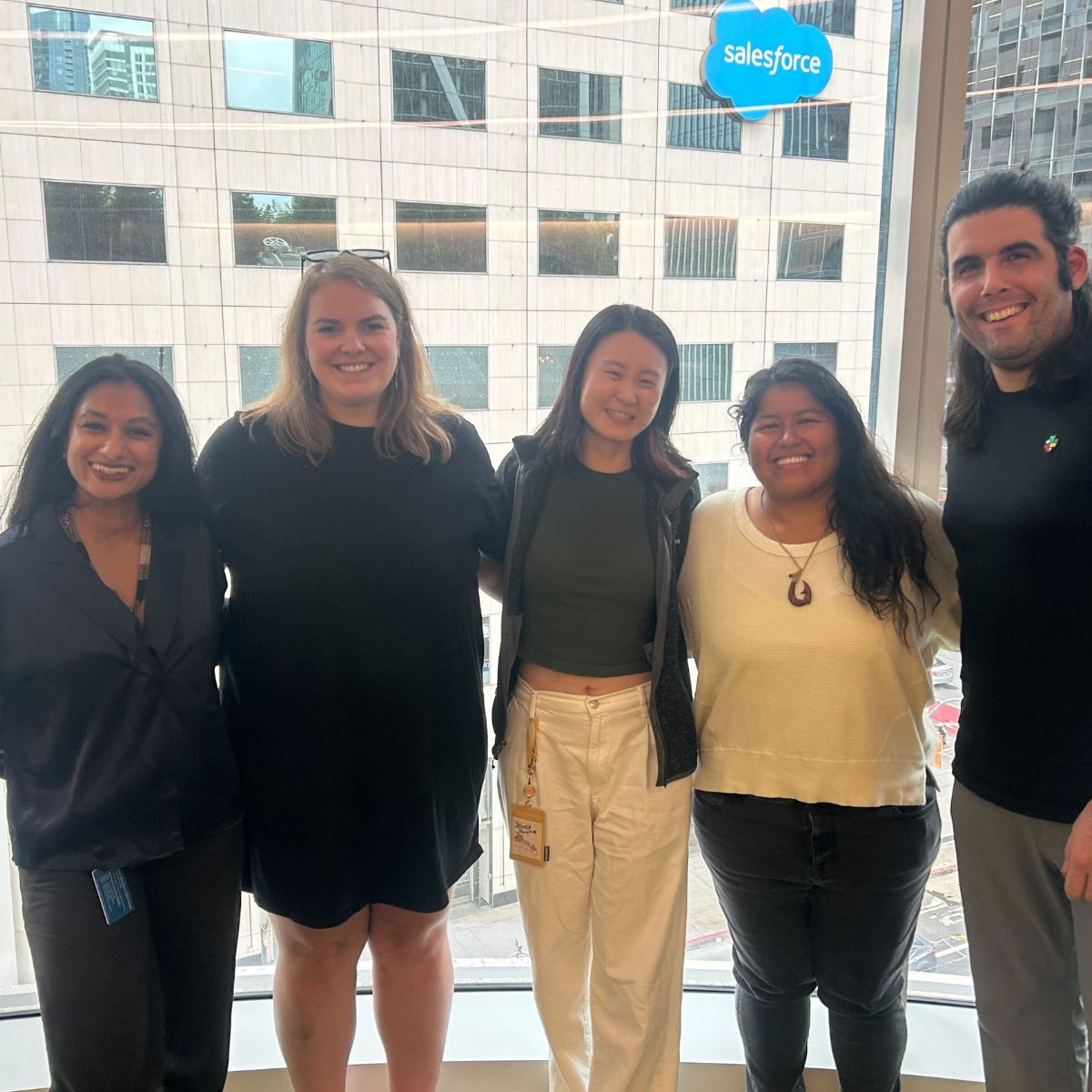Alumni Spotlight: Course Report
Course Report blogged about my coding bootcamp experience with Fullstack Academy's Summer of Code.


Frances Coronel was seeking a rigorous and challenging coding bootcamp experience to pair with her theory-heavy Computer Science degree at Hampton University. After applying to and interviewing with several schools (and blogging about the whole process), Frances found the Summer of Code program at Fullstack Academy, a full stack JavaScript-focused coding bootcamp in New York City. We catch up with Frances to hear about how Fullstack Academy offered the perfect summer option, her upcoming internship, and what’s up next for this coding bootcamp all-star!
Q&A
Frances, people may see you, a Computer Science undergrad student, and think, “why does she need to do a coding bootcamp?"
90% of CS undergrad degrees are extremely theoretical, and you won’t get a lot out of them if you focus solely on completing the classes. Even though I had been working with all the typical online platforms to learn how to code since high school (e.g. Codecademy, Code School, and Treehouse), you really have to possess a lot of discipline in order to complete these courses at a similar pace to that of any coding bootcamp. Aside from these online courses, you can always try to be proactive by attending hackathons, conferences, Meetups, and exploring what your local Slack groups have to offer. My local community is called 757Dev and they have a very active and helpful Slack group which is actually how I learned about the conference I spoke at right after I graduated from Fullstack.
You did so much research during your bootcamp interview process. How did you find out about coding bootcamps?
My dad forwarded me a news article in summer of 2012 specifically about App Academy and Dev Bootcamp. I was a junior in high school and was planning on majoring in Computer Science for undergrad so my dad felt such a program might be worth looking into. However, at that point in my life, I didn’t feel I had the technical aptitude to be accepted into one of these programs so I figured I would wait until I felt more secure about it.
In the fall of 2013, I started applying to several coding bootcamps for the summer and was fortunate enough to be accepted into RefactorU and Bitmaker Labs while also beginning the application process for a few others (e.g. Dev Bootcamp, RocketU, App Academy, General Assembly, Hackbright Academy, and Code Fellows) They were ok with my age (I was 18) and even though I was intending to go, I realized I couldn’t because I had to take some university courses over the summer.
Finally, in the fall of 2014, I started applying again (with a lot more determination) and started documenting the entire application process for the following bootcamps: Fullstack Academy, Coding House, Coding Dojo, Dev League, DESIGNATION, MakerSquare, and Hack Reactor.
What was the biggest red flag that you ran into when you were interviewing at coding bootcamps?
I think how well organized the interview/admissions process is can tell you a lot about the caliber of the bootcamp. While applying for Coding House, the technical founder was driving his car while interviewing me! And he was asking very basic questions (like - do you know what recursion is?), which was a big red flag for me since I wanted to be surrounded by students who are passionate about the material and not just looking for a quick intro-level program. In other words, I believe the standards that a school holds you to in the interview can tell you a lot about how rigorous the curriculum itself will be.
What was the hardest interview you did?
Fullstack Academy’s interview was by far the hardest, which was still appealing because it was nice knowing I was going to be challenged. I remember one of the questions in the coding challenge being directly taken from the famous book, “Cracking the Coding Interview" by Gayle McDowell.
I interviewed with Fullstack Academy in December 2014. Originally, I was applying for the normal Fullstack Academy program, but they introduced the Summer of Code program while I was in the interview process. It was targeted exclusively at those still in college (undergrad or grad) which was nice because I was surrounded by people my age, some of whom were also pursuing a CS degree.
Were there any additional requirements for the Summer of Code application?
No, the application was exactly the same for both programs. What was interesting was that even though most of the Summer of Code students had a CS degree background of some kind, others were pursuing degrees in Epidemiology, Connective Media, Electrical Engineering, and even Architecture. One student, Theo, was coming straight out of high school and was just 18 at the time. The requirements were those required by any Fullstacker - lots of passion and personability.
What was the difference between the Summer of Code and the regular Fullstack course?
The main difference is that you get the opportunity to interact with other college level students, which makes the experience slightly less isolating. They also emphasized that the Fullstack team would reach out when it’s time for internships, and that’s something I’ve already seen. I’ve been contacted by Google three times since graduating from Fullstack, which kinda blows my mind but having the skills gained from Fullstack would definitely put anyone in demand career-wise.
What was your Summer of Code cohort like?
There were 13 college students in our cohort (~25 in total). I was surprised that two of them were from Yale; it’s been mentioned a lot in the media how Yale’s CS curriculum is not on par with the curriculums of other elite schools like Stanford’s or CMU’s (Yale’s, apparently, is far too theoretical). I even talked to one of the Yale students at Fullstack and she told me that one of the primary reasons she was attending Fullstack was to make up for the fact she hasn’t learned a lot of the more modern developer expertise through her CS program.

(Summer of Code - Inaugural Class)
Did Summer of Code students work side-by-side with the non-Summer of Code cohort?
We were allowed to work with anybody on all the workshops and all the senior level projects but for the final Capstone project, we had to work with other Summer of Code students since the graduation dates were slightly different.
Fullstack also breaks us into “Learning Teams”, where we have a mentor assigned to some students in the current cohort to aid with programming problems or just any difficulties faced throughout the program. In my team, which we named “Bubbles” after the bubble sort algorithm, three of the students were there for the Summer of Code program. My mentor, Jimmy, was so helpful to me and proved to be such an invaluable part of my overall experience. Our team had a lot of fun together playing strange games like Avalon for our team lunches which just made me appreciate my Fullstack adventure all the more.
Tell us about the projects you worked on at Fullstack Academy!
The first “big” project I worked on was an e-commerce store which was supposed to help us learn the ins and outs of GitHub (organizing branches, issue maintenance, merge conflicts, etc.) My group ended up making an e-commerce store for robots called Robopocalypse (pretty standard). The second project was framed more like a hackathon in the sense that we had a very limited time to complete it. Most students completed the hackathon project by themselves. I created a project called RankMe, which aggregated data on Coding Bootcamps from Yelp, Course Report, Quora, etc. For the final capstone project, I worked on Hiredot, which was a web app meant to act as a platform for Fullstackers and interested companies to explore projects and hackathons as well as create their own profiles and set up hiring event preferences.
I consider myself a developer with a design background, which I think really helped me at Fullstack. You can make something technically challenging, but if it’s not usable, then, nobody will want to even look at it, let alone pay money for it.
What was the difference in teaching style between Fullstack Academy and your Computer Science degree?
It was very different. Fullstack has CS Saturdays now, where you get to work with data structures and algorithms. I think that’s a brilliant idea, and if I could have worked on Saturdays as well, I definitely would have. It was just that ridiculously fun. A good analogy here would be to Apple where the employees just feel so strongly about their company to the point where there is a certain culture that makes them want to work more and more.
So this doesn’t apply to all undergraduate schools of course, but I’ve found that the professor doesn’t care if you participate or not. You can learn the material on your own, or you can never learn it and cheat (unfortunately, I see this a lot.) At Fullstack, if I had cheated on an exam during my junior phase, I would have been totally screwed later on!
The other difference is that most universities are not built to have a very interactive learning environment; so you’re not obligated to participate. At Fullstack, one of my instructors, Omri, actually had a console application that he used to randomly select students to call on if we weren’t participating as much as we should be. It worked pretty well!
Did you think Fullstack Academy or your Computer Science degree was harder?
No question, Fullstack was way more challenging. This is cliche, but I really did learn a lot more in those 12 weeks than I would have in 12 weeks at college.
I think it’s important to note that Fullstack even incorporates data structures and algorithms (DSA) into the curriculum (with their CS Saturdays).
Looking back, did you need to do the Computer Science degree?
Unfortunately, I don’t think I needed to do a CS degree for the career I want. Ultimately, I want to work as a software developer/product designer.
If I were trying to get into academia where I would be working with CS research involving topics like computer vision, artificial intelligence, etc., then of course, I definitely would have needed the Bachelor’s degree (at the very least). A lot of students coming out of college also have to worry about student debt which is something to consider when deciding whether such a degree is worth it.
Now, I’m looking at Masters degrees (surprisingly). That’s partially because my parents want me to but also partially because I don’t want to regret it later. One of the programs I’m looking at is a MEng in CS at Cornell Tech, which is supposed to offer a more practical hands-on experience. My partner for my Capstone project for Fullstack is at Cornell Tech for Connective Media and she convinced me to apply. Aside from exploring conventional Master’s degrees, I’m also looking at attending longer bootcamps (two years long) like the ones offered by Make School and the Holberton School.
Did Fullstack de-emphasize job placement since you were all college students?
A little bit, yes. The Summer of Code students graduated one week earlier because the other students all do job placement during that week.
Do you have any advice for other college students or coding bootcamp graduates?
I made it my goal this semester to attend as many conferences and hackathons as possible and I think that these opportunities best replicate the bootcamp experience since they’re short, very immersive, and relevant to today’s demands
So far, I’ve been able to attend several of these like TreeHacks, Developer Week, and React.js Conf. For Spring Break, I’ll be attending the Fluent Conference organized by O’Reilly.
Do you get sponsored to go to conferences like that?
For the Developer Week conference, I applied to be a volunteer and got an all-access pass in exchange for working two, 6-hour shifts. Then for React.js Conf and Fluent Conf, I applied for the diversity scholarships, which I’m very appreciative of, being a Latina in tech.
TreeHacks hackathon also reimbursed me for flight costs since they had a more selective process for out-of-state students.
Tell us about the internship you’re about to start!
It’s a summer internship based at Accenture’s Tech Labs in San Jose. Accenture is a consulting firm, which I didn’t expect would be the kind of field I would enter into initially, but they were able to really pitch the value of their internship and offered me a great package. I’ll be working in web development, but beyond that, I don’t have a ton of details.
Did you talk about your Fullstack experience in that internship interview process?
Yes! That was actually the primary experience that really stood out to my technical interviewer. Another reason I feel Fullstack was definitely worth it.
For someone who is currently doing an undergrad CS program and thinking about doing a bootcamp, what’s your advice to them?
If you’re enrolled in an elite undergraduate program or you are not paying a lot for school, then I believe it wouldn’t hurt to finish the degree.
This is because, unfortunately, society is still at a point where we really value that piece of paper. Some people are brave and are willing to/can afford to drop out of college to do their own thing; I’m not that brave. I need to know that I can fall back on that CS degree at whatever point in the future. As a female minority, I also feel like not having that degree is just a risky proposition in general. I wish it wasn’t of course, but it definitely is, even within the tech industry where businesses like to emphasize technical ability over pedigree. Silicon Valley hiring isn’t exactly a meritocracy, though.
The safer option that I ultimately decided to go with was completing a brilliant coding bootcamp like Fullstack Academy over the summer which I could incorporate easily with my degree. Being able to build cool stuff while also being around smart people is typically the goal of most high-achieving developers.
When you’re applying for a bootcamp, it’s very important to really do your research. Course Report, of course, is one of the best tools for this with in-depth reviews, interviews, and resources, but you should try go the extra mile. That means looking at existing questions answered by the coding bootcamps on sites like Quora (most bootcamps will have their own Quora profile), going to LinkedIn and looking up alumni to contact (they may actually be able to tell you something you would never find online!), and making sure you understand exactly what you’re getting into. Much like a relationship, attending a bootcamp is a serious financial and time investment, so it’s important you choose your partner wisely - a partner that’s worth that money, duration, and effort.
For example, I realized after finishing Fullstack that the ROI was so much higher than a normal semester at university. Accounting for all travel, food, and lodging costs, Fullstack cost me around $14K (rounding up) for 650 hours worth of content (rounding down) over the span of 15 weeks. You take that and compare it to one semester of university (my Fall 2015 semester, for example) which was 14 weeks, 255 hours of classroom time, and cost $29K if I were paying for it, then it’s easy to see why bootcamps are in fact becoming so popular.
The below images show time and money spent on bootcamp vs CS degree:

Frances' spending while at Fullstack Academy

Frances' spending in one semester of her CS degree
The rest of my advice for people considering a bootcamp is pretty basic: create a GitHub account, spice up your LinkedIn profile, make sure you have a website (GitHub pages is a good start), and really just become as much of a developer as you can on your own before you start!
I think coding bootcamps in the future are going to become a more credible and reliable way to gain a foot in the door of the tech industry so regardless of whether you’re interested in attending one or not, exploring the rapid growth and expansion of this industry throughout the past four years has been fascinating.
Find out more and read reviews on Fullstack Academy's Course Report page. Or check out the Fullstack Academy website.






